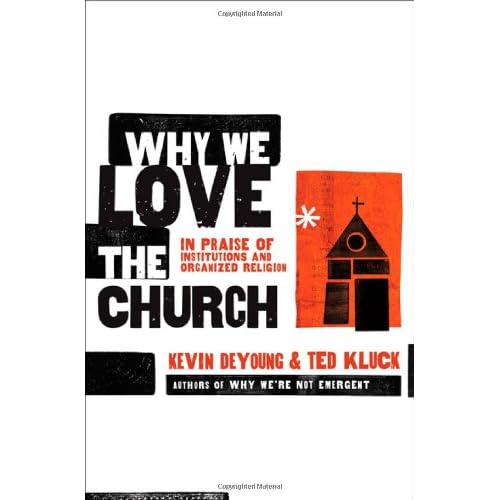
What can I say? Bagging the church has become so commonplace that writing about the AWESOMENESS of the church has become cool in a weird countercultural manner. It's so commonplace to find books about "community" and "religion (ie Church) is bad, spirituality (ie talking about God in Starbucks) is cool". But how often do you come across a book that argues FOR the Church?
In all seriousness - DeYoung and Kluck have put together a great book, worthy of its title. Mind you, this is no theological treatise examining constructs of the "visible vs the invisible" Church and so on, but a heartfelt, down-to-earth plea for Christians to come back to their senses; to stop talking about how one can find God in places like StarBucks and Enimem music, and to just love God and serve His people for who they are.
In this book, they discuss the (occassional) madness of the Emergent Church movement (and its merits), and then engage with all the "Disappointments" emergents often have with the church. And the conclusion at the end is not wholly unexpected - we know the Church isn't perfect, but whether you're emergent or reformed or pentecostal, you've got to learn to deal with it.
Mind you, the style of this book swings between bits by DeYoung and others by Kluck, but with surprisingly good effect - for reflectiveness and theological thoroughness of the former being balanced out by the humor and down-to-earth style of the latter.
Whilst they don't break any new ground in Ecclesiology, I would heartily recommend any Christian to read this book, simply for the fact that it draws us back to see the big picture - that we are God's people, broken, but eagerly awaiting our redemption. And the best place to do that, is with the Church.